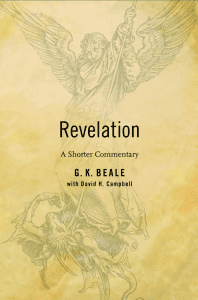In the next two years Americans will be bombarded by political rhetoric. I am not alone in decrying the politicization of our culture, and neither am I alone in urging followers of Jesus to refocus. Political rhetoric is not only filling our imaginations with hope, hope that can’t be delivered by a President, but it is reshaping Christian thinking so much so that intelligent studies show that the Church in the USA has been politicized. That’s a sad commentary on us.
 I begin a series today on Converting our Imagination, and at the bottom of this is an examination of the Book of Revelation. The book is Resistance Literature pure and simple. It is theo-politics. It is anti-empire. It is for Christ, but the Christ who Reigns is the Lamb.
I begin a series today on Converting our Imagination, and at the bottom of this is an examination of the Book of Revelation. The book is Resistance Literature pure and simple. It is theo-politics. It is anti-empire. It is for Christ, but the Christ who Reigns is the Lamb.
What does this book teach us to imagine? What movies are most like Revelation? What literature is most like Revelation? (I suggest Flannery O’Connor. What say you?)
To assist us in this study of Revelation, and I won’t be writing a mini-commentary but probing themes, I will be using Michael Gorman’s new book, Reading Revelation Responsibly: Uncivil Worship and Witness: Following the Lamb into the New Creation. The topics will be set by the order of Gorman’s chapters.
We begin today with polarization. To be blunt, some people think this book is awesome and inspiring — like Eugene Peterson and Michael Gorman and Richard Bauckham — while others think it is a disastrous piece of violence. Thus…John Dominic Crossan: the Book transforms “the nonviolent resistance of the slaughtered Jesus into the violent warfare of the slaughtering Jesus.” Nietzsche: “the most rabid outburst of vindictiveness in all recorded history.” Well, enter Martin Luther himself: “neither apostolic nor prophetic… I can in no way detect that the Holy Spirit produced it … Christ is neither taught nor known in it.”
But Michael Gorman points to the glorious language of Revelation that has been taken up on song — Holy, holy, holy! and Crown him with many crowns and Michael W. Smith’s Agnus Dei and the art of Joachim of Fiore, or the powerful commentary of Eugene Peterson and Bruce Metzger and Richard Bauckham.
On top of this, Revelation has inspired millions of Christians to resist evil empire and injustices and oppressors.
This book, Gorman says, is the “liturgical, poetic (or, better, theopoetic) conclusion to the Christian canon” and also has “a political (or, better, theopolitical) character. It can transform the imagination with respect to how we perceive and live in relation to God, others, and the world” (8).










